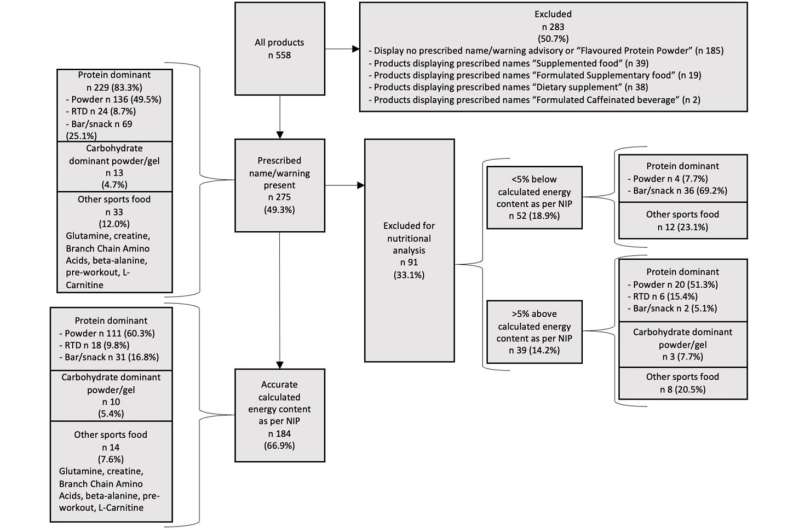Study reveals sports foods are often mislabeled

A comprehensive audit of readily available sports foods has revealed many are mislabeled and claim to be more nutritious than they actually are.
The audit of foods by researchers from Deakin University’s Institute for Physical Activity and Nutrition (IPAN) looked at protein based products (powders, bars and snacks, ready-made shakes), carbohydrate based products (powders, gels) and other products like creatine and beta-alanine which are sold in supermarkets, pharmacies, health food stores and gyms.
Ph.D. candidate Celeste Chapple said the amount of misinformation on product labels was shocking and raised serious concerns for average consumers who buy these foods assuming they are nutritious and can be eaten as part of a healthy diet.
The IPAN sports food audit looked at food labeling on all sides of the packaging finding:
- approximately 33 percent of products appeared to have incorrect nutrition information,
- less than half the products displayed the correct warning and advisory statements, or the prescribed name (which is a requirement of Food Standards Australia New Zealand under the food standards code),
- around a third of sports foods, particularly protein bars, provided nutrient information that did not match the stated energy content on the nutrition panel,
- sports foods displayed multiple claims, including one product that displayed 67 pieces of information. Given the misinformation in the nutrient information, the claims were likely to be incorrect or misleading.
“These findings suggest current labeling is misleading and deceptive. We need a complete overhaul of labeling for sports foods and restrictions placed on where these foods are sold to ensure consumers have the accurate information needed to make healthy choices,” Chapple said.
“Consumption of sports foods has increased dramatically over the past 20 years and people might reasonably expect these foods to provide the energy and nutrients required to lead a fit and healthy lifestyle.”
“The incorrect nutrient information suggests food manufacturers are favoring marketing statements on packaging over accurate nutrition information, which could result in consumers eating too much or not enough of particular nutrients/foods.”
“In addition to misleading nutrient information, almost all the sports foods surveyed included an artificial sweetener and many products contained multiple artificial sweeteners which we know can be harmful for some people.”
“Food Standards Australia New Zealand is currently reviewing the standards for these foods since they were first published in 2001.”
“This review needs to recommend better regulation of labeling and tighter restrictions on where these foods can be sold. For example, age restrictions on products are harder to enforce when the product is sold in supermarkets, rather than chemists or health food stores.”
The findings are published in the journal Frontiers in Nutrition.
More information:
Celeste I. Chapple et al, Sports foods are not all they shake up to be. An audit of formulated supplementary sports food products and packaging in Australian retail environments, Frontiers in Nutrition (2023). DOI: 10.3389/fnut.2023.1042049
Journal information:
Frontiers in Nutrition
Source: Read Full Article



